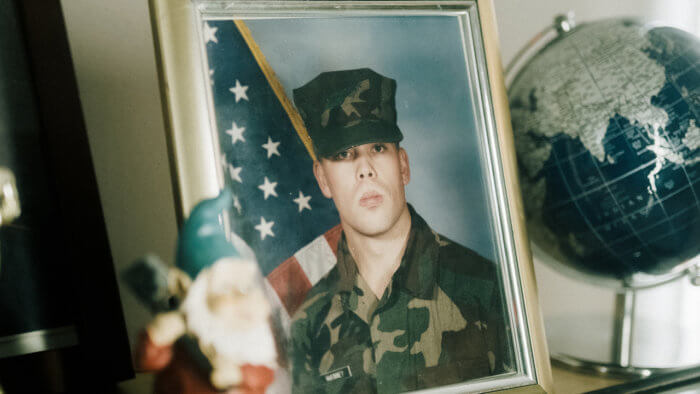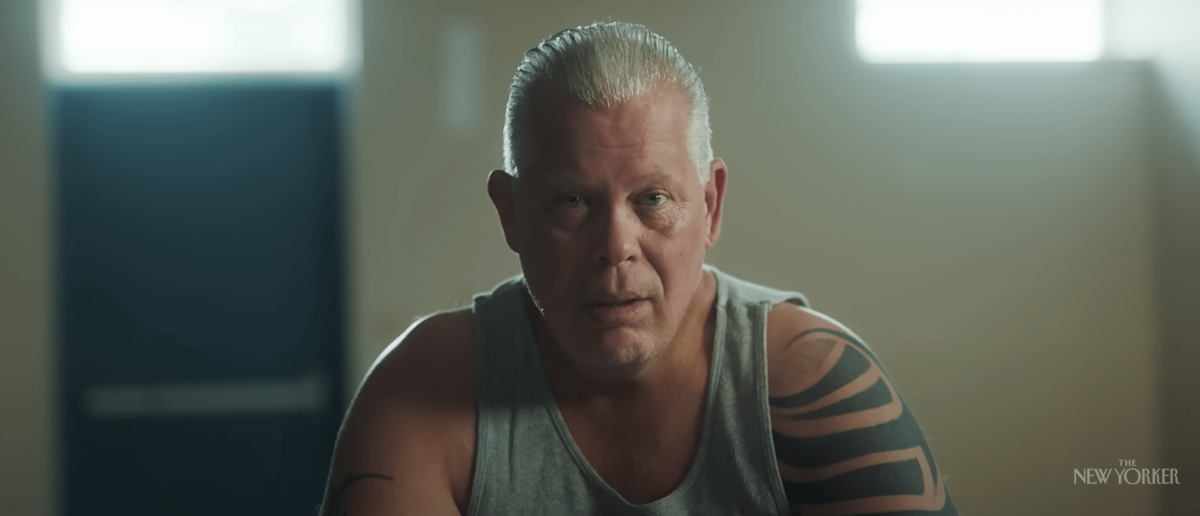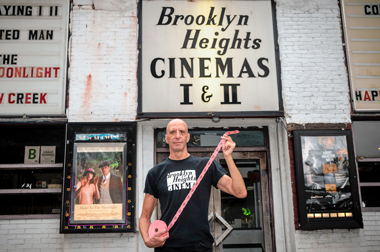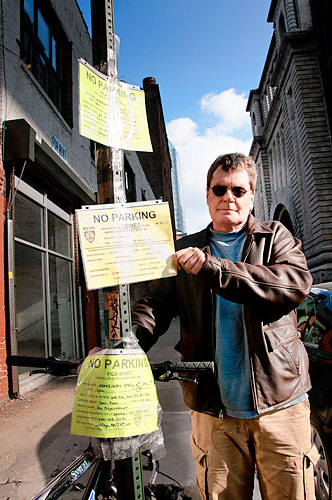And the winner is…
Fresh off a humanitarian trip to Ukraine a Brooklyn-based doctor Conrad Fischer stepped into the film world last year when he produced “Stranger at the Gate,” a documentary directed by Emmy-Award winning director (and fellow New Yorker) Joshua Seftel. The film has earned a spot on Academy Awards’ shortlist of the top 15 documentaries in the world and is seeking an Oscar nomination.
The short film portrays the struggle of ex-U.S. Marine Mac McKinney who, after 25 years of service, returned home to Munsie, Indiana, where the local Muslim community was growing with immigrants mostly from Syria, Bangladesh and Afghanistan. Enraged by the prospect of cohabiting with people who remind him of where and what he was fighting against, Mac Kinney began planning a terrorist attack against a local mosque. His family started to notice changes in his behavior, he openly rejected any contact with the Muslin community around him — even the FBI picked up on suspicious activities as he started to collect materials to build a bomb.

But as soon as he arrived at the house of worship he was planning to destroy, he was intercepted by congregants who quickly disarmed him. Rather than reacting with anger and turning Mac Kinney out, the people there helped McKinney to heal, and he grew to be a strong ally for the local Muslim community — turning back from the brink of terrorism. In “Stranger at the Gate,” McKinney and the Muslim families he threatened — then bonded with — tell the story from their points of view.
Fischer, the documentary’s executive producer, works with seven medical centers in New York, including Bellevue Hospital, and is the vice chair of medicine at Brookdale Hospital of One Brooklyn Health and residency program director in the Department of Medicine. Producing “Stranger at the Gate” is Fischer’s first foray into the world of film, and it sits close to his heart.
Last April, Fischer joined a humanitarian mission to provide aid such as medical equipment and training to Ukrainian soldiers at a war zone after the Russian invasion started. Before that, he traveled to Haiti to help build a hospital there. This is how Fischer has experienced being an immigrant and being welcomed into cultures that are foreign to him.
“This film tells a story that exemplifies how the hate and division we see every day in this world, can draw a person to extremes,” he said. “But this film is also about what happens when immigrants, including immigrant doctors, show compassion, openness, and forgiveness. This film is about the power that immigrants have to heal society.”
In December, the Academy unveiled its shortlists for the 2023 Oscars in 10 categories, including documentary and international features. Fischer is raising $100,000 to campaign for the nomination, pay for the ads, rent out theaters, work with a publicist. The next round of Oscar voting for the final nominations begins on January 12th. Now that the film has made it to the shortlist of candidates, after being among documentaries from 92 countries and regions that were eligible, “Stranger at the Gate” could be nominated on Jan. 24th.

“Yes, even Socrates needed Plato to market him,” said the doctor. “My part is to raise $40,000 of this total. An Oscar nomination would certainly be nice. But, most importantly, it would help magnify the reach of this film to new audiences, and continue to spread the transformative message that love conquers hate.”
Fischer is driven by the desire to help people — to “neutralize hatred from the oppressor with humanitarian love,” as he told Brooklyn Paper before he headed to Ukraine last year. He does not believe in waiting around for other people to step in to help — and has stepped up to help out himself time and time again, across continents and now across mediums. An Oscar for “Stranger at the Gate” would be more than a win for him, or for McKinney and the community in Munsie, Indiana, he said — it would be a win for his home.
“The big issue is, people in the wide world of New York think East New York, our neighborhood is a s—hole and nothing good can come from us,” Fischer said. “If we win an Academy Award, we could demonstrate we care about diversity, inclusion and people’s stories. We think the diversity and collaboration of our neighborhood can be a lever with which to move the world.”

























